Integrated Research Training Group (MGK)

About the graduate school
The “Integrated Research Training Group” (MGK) is the central place for doctoral students to learn and innovate methods and, in the third funding phase, builds on the CRCs’ claim to investigate cooperation in sensor-intensive environments. In addition to infrastructures and public spheres, the focus is on environments and bodies. The central objectives are to conceptually structure the analysis of media, data and sensory practices, to investigate the role of sensors in cooperation processes in the field of tension between publics and infrastructures and to realize methodological innovation.
The MGK is the setting for an internationally oriented interdisciplinary doctoral training program that significantly expands the range of topics of the sub-projects and contributes to the development of a digital praxeology. The core element of the MGK is the regular research colloquium for all SFB doctoral students. Interdisciplinary small groups enable collaboration on relevant topics. The proven workshop for media practice theory will be continued. The master class for media ethnography, the Digital Methods Summer School, the Research Tech Lab, the Data Labs and the annual Summer Schools form the foundation of the methods training for doctoral students. A lecture series, subject-specific methods workshops and data sprints round off the program for all members of the MGK. All doctoral students also benefit from writing retreats and the offerings of the House of Young Talents (HYT) and the Women Career Service to acquire relevant skills.
In order to promote networking with relevant national and international research communities and projects, the MGK is once again awarding 6-month short-term fellowships and promoting exchange with international guest researchers and cooperation partners through collaborative event formats.
PhD candidates of the MGK

Tahereh Aboofazeli Profile
MGK Scholar
Dissertation Project: “TBA”
Abstract: TBA.
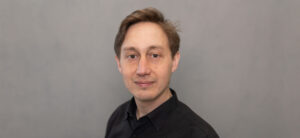
Hendrik Bender Profile
Research Assistant in the Subproject B08 “Agentic Media: Formations of Semi-Autonomy”
Dissertation Project: “The Media that follow: Navigatorische Prozesse und Medienpraktiken sensorbasierter, semi-autonomer Akteure am Beispiel von Hobbydrohnen”
Abstract: The research project deals with the “Medien-werden” (the way in which the drone becomes a medium) of sensor-based, semi-autonomous drones as situated media capable of both generating knowledge about their surroundings and acting upon it. The project looks into drone practices in both recreational and commercial application contexts. While in recent years stable media practices such as the “dronie” have become established in the context of recreational drone-usage, the drone is also experiencing increasing professionalization in the private sector. Especially in agriculture, more and more control and monitoring tasks are carried out with the help of drones. The data collected can be used to determine whether fields need to be watered or fertilized and promises to eventually be able to tend to individual plants. The focus of current developments lies on the interoperability of agricultural equipment to automate work processes as far as possible. The PhD project ties in with these developments and examines the redistribution of agency on one hand and the emergence of a changed spatial consciousness on the other.
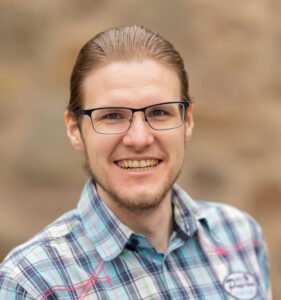
Michael Brilka Profil
Research Assistant in the Subproject P05 “Social Interaction in Semi-Automated Road Traffic”
Dissertation Project: “TBA”
Abstract: TBA.
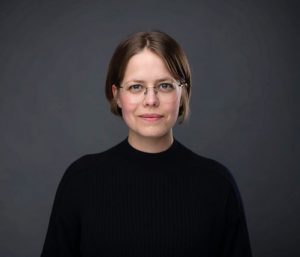
Susanne Förster Profile
Research Assistant in the Subproject B08 “Agentic Media: Formations of Semi-Autonomy”
Dissertation Project: Chatbots as Agentic Media (WT)
Abstract: TBA
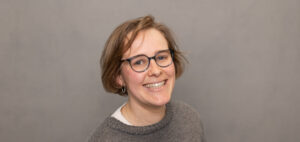
Johanna Hiebl Profile
Research Assistant in Subproject P06 “War Sensing”
Dissertation Project: “TBA”
Abstract: TBA.
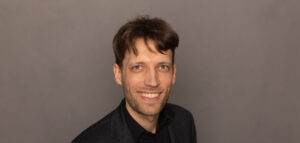
Max Kanderske Profile
Research Assistant in Subproject A03 “Navigation in Online/Offline Spaces”
Dissertation Project: Navigating the Noise: A praxeological examination of self-localizing interfaces
Abstract: Since their rise to popularity in the 2000s, Mixed Reality interfaces and applications have been the subject of a plethora of studies within the fields of spatial research in general and human geography in particular: the way the technology influences the production of space, questions of escapism and privacy as well as the transformative potential MR might exert on societies at large were discussed, oftentimes in highly speculative ways.
This PhD project takes a step back from these macro-scale endeavours. Instead, it proposes the basic principle behind all Mixed Reality technology as a starting point for further discussion: MR interfaces share a common reliance on a specific relation between the user’s point of view, the position of the interface itself and the angle at which the digital objects are presented on said interface. The illusionistic effect produced by this spatial arrangement of physical and digital objects – as well as the socio-spatial transformations depending on that illusion – can thus be boiled down to a micro-scale navigational problem that has to be solved in a concerted effort by an actor-network comprised of both human and technological actors, i.e. the user and the employed hard- and software.
Adopting this approach opens up two promising avenues of research: On one hand, a praxeological study of recent MR interfaces aims to shed light on the ways in which movement through hybrid spaces, as well as interaction with hybrid objects, can (or cannot) be facilitated through sensor-based micro-navigational practices. On the other hand, an analysis of MR’s unique navigational challenges will contribute to the fields of media geography and sensor media research by contextualising MR technology within a wider range of historical and recent navigational practices.
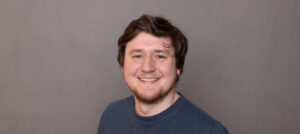
Kevin Mimke Onland Profile
Research Assistant in Subproject A03 “Navigation in Online/Offline Spaces”
Support of the CRC 1187 Coordination
Dissertation Project: “Anthropocene media of interdependent relationality. Medial visualisation of the medium environments”
Abstract: The Ph.D.-project creates a media concept based on theoretical points in the Anthropocene discourse. Therefore it focuses on the media motif of visualizing the environment.
For a long time, “nature” was seen as a border concept and the opposite of humans and their cultural life. But in the “human epoch”, as proclaimed by Crutzen and Stoermer, the realized and empirical proofed human impact on the geophysical, -chemical and biospheric entities and processes of the earth systems, has made that epistemological perspective obsolete.
Human and non-human entities are entangled, said with a term by Donna Haraway, in an interdependent net of relations. They create opportunities as much as obstacles for each other’s development and stability. For this environment is not a rigid object of hegemonial domestication anymore but an active media in sense of Durham Peters “container of possibilities”.
The Anthropocene media concept as it is the gain of this project tends to deal with the requirements of perception challenged by the Anthropocene discourse. To test this concept, it will be compared with past decade’s art media phenomena. Those included environmental processes and non-human entities as creative subjects to call attention for the interactive impacts of human and non-human entities and by that translates the complexity of the Anthropocene in perceptible scales.

Vesna Schierbaum Profile
Dissertation Project: “Discursive construction and mediations of the sensory crowd”
Abstract:
The crowd as a specific model of data aggregation has recently been problematized under the aspect of the opacity of its affective operations with media and in information systems (Pias 2016; Stäheli 2012, 114). The operational media practices of the crowd can be observed through the prism of their medializations. These, however, are preceded by specific production processes; they must be considered against the background of certain knowledge-political strategies as well as under consideration of “efficiency orientations and progress euphoria” (Otto 2012, 191) in hegemonic discourses, in which the crowd is constructed as an original knowledge resource.
The research project assumes that the economic and scientific discourses on emerging media techniques such as crowd sourcing and crowd sensing as well as the mediations of these techniques are themselves involved in the construction of the crowd in a circular process. Not only do these discourses negotiate technical and legal feasibilities, but they also transport certain imaginations of the crowd as a source of knowledge, which again manifest themselves, for example, in the conception of applications and interfaces in the context of concrete projects. Results of these ensuing knowledge processes in turn provide medial representations of the crowd. These discursive and representational modes flow into a construction of the crowd as a contemporary epistemic figure. The aim of my research project is to analyze in how far this knowledge figure can be described as a sensory crowd situated in concrete worlds and environments, and how it is performative in the process of material-affective media operations on the ground.
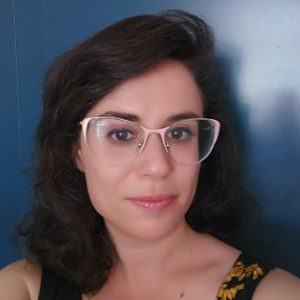
Yarden Skop Profile
Research Assistant in the Subproject A07 “The Industry of Personal Data”
Dissertation Project: “Studying the relationships between platform companies and publishers through the development and deployment of computational tools for content moderation and fact checking”
Abstract: The relationships between online news publishers and platform companies are entangled and multi sided. In the current political-economic setting, news outlets are dependent on platform companies for distribution and exposure and also for the development of different technologies used in news rooms. One aspect of the multifaceted relationship between platforms and publishers is a developing situation in which platform companies are in need of certain capacities or data which news (and more broadly journalistic organizations) have to offer. In recent years, due to public scrutiny, platform companies have been turning to news organizations to assist them with the development of technologies to deal with two core issues that are in the center of criticism on platforms: proliferation of hate speech and violence and the spread of misinformation. The proposed research will deal with the development of two parallel technologies that are being co-created by journalists and tech platforms. These technologies are broadly defined as (1) automated content moderation, focused on identifying damaging and harmful speech and (2) misinformation identification, sometimes referred to as automated fact checking. From the perspective of platform companies, both issues are questions of moderation and of how much platforms should interfere in policing content and how to make these decisions and justify them in the public discourse. The project will involve identifying case studies in the form of tools developed for these purposes, and exploring them by using mixed methods, including interviews with stakeholders, publicly available sources, developer documentation and grey literature. Its aim is to frame the emerging relationships between news publishers and platforms, with a focus on journalists’ agency in the process of automation of core journalistic work that is traditionally considered to be human centric.
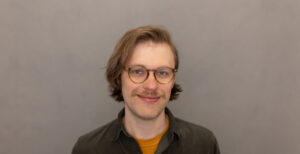
Niklas Strüver Profile
Research Assistant in the Subproject B06 “Un-/desired Observation in Interaction: Smart Invironments, Language, Body, and Senses in Private Households”
Dissertation Project: “Voice Assistants as sociotechnical phenomena: About infrastructures and platforms”
Abstract: Intelligent Personal Assistants (IPA) as an assistive digital technology are further proliferating in pop culture and everyday life. According to big tech companies IPAs are supposed to ‘make lives easier’ and ‘help get things done’. At least in some aspects however, reality seems to differ from that promise. Ideally IPAs would function as an infrastructure to mundane tasks that blend into background and do not need to be considered at the moment of use. Taking a relational stance, I want to investigate in what kind of situations IPAs work frictionless and correspondingly when interactional difficulties tend to occur. Given the field of nascent technology, these processes are a moving target that will have to be captured over time. Investigating the different evolving characteristics of these sociotechnical situations could e.g. shed light on relations of power, invisible labour and contingency in the use of IPA and further understanding of different types of actors involved. Thus, I qualitatively explore the development of human-machine-interactions in the context of IPAs like Alexa or Google Assistant.
Theoretically my research is based on concepts of sociotechnical infrastructure and assistance (within the broad spectrum of STS) and the concept of digital platform technologies (as discussed in media studies). While the former affords the aforementioned relational view on technology, the latter adds a valuable perspective to understand the implications of algorithms and datafication that frame interaction with IPAs. The convergence of these two fields of study enables a perspective that can show relationality, dependencies and inequalities on the one hand. On the other hand, these aspects can be set into perspective by considering platform technologies as data driven sociotechnical complexes that can shape interactions. I therefore assume IPAs to be infrastructures and platforms at the same time and explore various levels of observation as well as different types of involved actors. Here the iterative production of social reality is being shaped by various entities with different values, resulting in various methodological approaches.
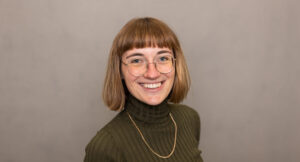
Carla Tiefenbacher Profile
Research Assistant in the Subproject B04 “Digital Publics and Social Transformation in the Maghreb”
Dissertation Project: “TBA”
Abstract: TBA
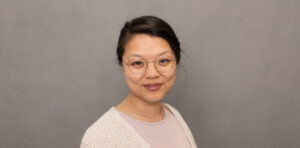 Hoa Mai Trần
Hoa Mai Trần Profile
Research assistant in project B05 “Early childhood and smartphones. Family interaction order, learning processes and cooperation”
Dissertation project: “Neither analog nor digital: Entanglements of agency in children’s digital gaming practices. A digital-hybrid ethnography in childhood research” (Working title)
Abstract: Aim of the doctoral thesis “Neither analogue nor digital: Entanglements of agency in children’s digital gaming. A digital-hybrid ethnography in childhood studies” is to analyze human and more-than-human actors in digital digital play following posthumanist childhood research (Malone, Tesar, Arndt 2020; Murris 2016). The digital game as an practice serves as a “burning glass” of the intermediate space, a kind of “in-between” of supposedly clear-cut concepts such as analogue and digital, active and passive, real and fictional, fantasy and seriousness and is framed as a media practice of childhood (Wiesemann et al. 2020/Wiesemann et al. 2018). Digital play becomes a mode of experiencing reality and the self (Schäfer 2016) through ethnographic-hybrid childhood research (Clark, Moss 2011/Clark 2017; Pink et al. 2016), which specifically embraces children’s expressions and perspectives of children. Sociomaterial arrangements (Gherardi 2017) and more than human agency is considered in digital play as a multisensory and multimodal practice of children and other actors intraactively through play. The research questions are: How and as what does digital play produce the child and the world? Who or what acts through more than human interaction? What does the child do with the game and the game with the child? These questions will be explored in through a research with children aged 5-12 years in 4-5 families. Digital play practices and the everyday life of children are applied in the primarily domestic milieu consisting of participant observation supplemented by child-centered methods (e.g. including dialogic-narrative interviews, room/play inspection, children’s drawing) based on the Mosaic Approach (Clark 2017). Furthermore, filmic vignettes from the camera ethnographic approach as well as a look at interfaces and platforms in the exploration of analogue-digital environments in the sense of a digital-hybrid ethnography are incorporated (Pink et al. 2016). Research ethical questions and challenges are reflected upon and addressed in the research process. The analyzing strategy is based on reflexive grounded theory (Breuer et al. 2017) to generate insights into selected phenomena of digital play, which show the digital play of children in their everyday lives of big data, the situatedness of media practices and, above all, the entanglements in doing, feeling, sensing and typing in digital play through human and more-than-human touching and being touched.
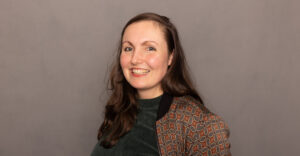
Daniela van Geenen Profile
Research Assistant in Subproject A03 “Navigation in Online/Offline Spaces”
Dissertation Project: “The values of urban sensing: making sense of sensor technologies and data in public management and local governance”
Abstract: This dissertation project at the interface of media studies and STS deals with the following central research question: How do urban sensing technologies and the resulting sensor data become actionable in local governmental contexts with regards to infrastructure planning and management, as well as mobility decision- and policy-making? More specifically, the research project relates to debates and work in (critical) data, device and infrastructure studies. It is especially concerned with the ways in which sensor technologies and their data mediate and furnish the ground for political and/or social action by diverse actors and/or serve economic purposes, and the tension fields the different underlying interests, objectives and values at play might create. Moreover, the project examines and maps the conditions and limits of the actionability of sensor technologies and data in urban, political and governmental contexts. These technologies and data are understood and approached as collective accomplishments of certain mundane ways of doing, or practices.
While research has been conducted from different disciplinary strands on “smart cities”, “(open) data governance”, “citizen science” or “citizen sensing”, this research project offers a more fine-grained, practice-based perspective posing the following questions: Which concrete media and data practices are involved in urban sensing – in contrast to particular socio-technical and (big) data imaginaries? How is the sensor data generated, processed, analyzed, conceived and made sense of (including by those who produce the data)? Which kinds of epistemic, social and public values and valuation processes are involved in this process – based on which institutional and/or economic politics, and embedded in which socio-material and -technical infrastructures?
The dissertation project investigates these research (sub)questions empirically and comparatively studying two case studies, in which public-private cooperation is vital: the Snuffelfiets (Snifferbike) project, which collects air quality and mobility data through bike-mounted sensing devices, is situated in and managed by the Dutch Province of Utrecht. Next to such local initiatives, which promote and depend on active participation of citizens, global players such as Strava Inc. engage in urban infrastructure monitoring and planning. The platform company repurposes data generated through Strava app usage offering it through their Strava Metro platform catered to governmental institutions, city planners, and transportation researchers, for instance, in the Netherlands, a prominent cycling country. The practice and modality of cycling are vital in both case studies as ostensibly healthy and sustainable form of mobility, through mobile sensing and data contributing to environmental monitoring. In the study of these case studies, the dissertation project adopts a praxeological methodological stance, making an effort to follow the (sensor) data, related practices and actors across settings and situations. In terms of methodological reflexivity, the project accounts for research-ethical decisions made in this course. Eventually, the dissertation project presents a move away from, and empirical material-semiotic redefinition of, prominent technocratic and computational understandings of “urban sensing”.

Working groups of the MGK
Technography in Practice
(Daniela van Geenen, Danny Lämmerhirt, Hoa Mai Trần, Tatjana Seitz)
The working group makes an effort to delve into the possibilities of “technography” (e.g. Bucher, 2012; Jansen & Vellema, 2011; Kien, 2008; Rammert & Schubert, 2006; Vannini et al., 2009; Schubert, 2019) exploring digital devices and platforms (e.g. hardware, software; their development, adaptation and use). The main focus of the working group will be directed toward actual analysis of technical objects and/or tools in relation to relevant media and data practices. Such analyses can consist of analyzing the development process of hardware, software, platforms, and/or devices (using relevant documentation) and material generated by means of using these technical objects, technologies/tools (incl. logs; (auto)ethnographic descriptions, collectively or individually achieved etc.). Our goal is “to learn and develop technography by doing” building on our own case studies iteratively and discuss in our meetings how technography works and can be used approaching the specific case studies. The activities of the working group might also consist of reading groups and discussions of main concepts connecting to our own textual work relating to technography.
Technological actors in social situations
(Hendrik Bender, Tim Moritz Hector, Max Kanderske, Susanne Förster)
The reading group discusses the role of technological actors in social situations. We read and critique the concepts and underlying theoretical systems of Interaction (starting off from Schütz, Garfinkel and Goodwin), Interoperability and Agency. We plan to read the relevant literature, discuss if the concepts can be applied to our own work and to the phenomena of our research focus. This also includes regular discussions of material, texts produced by members of the groups and bits and pieces we find during the research process.
Design of the interdisciplinary work for technology development
(Julia Kurz, Aynalem T. Misganaw, Dmitri Presnov)
The goal of this working group is to analyse the main challenges that arise by the cooperation between different disciplines participating in the development of a new technology and to draw up a guideline for an efficient design of such interdisciplinary cooperative work. Of particular interest are such aspects as reconciliation of discipline-specific goals and perspectives, delimitation vs inclusion in the distribution of tasks, elaboration of tools and a common language for an interdisciplinary concept transfer.
Interface. A blog by the Collaborative Research Center “Media of Cooperation”
(Asli Telli Aydemir, Jason Chao, Pip Hare, Sarah Rüller, Fernando van der Vlist)
Outreach is a blog for researchers, journalists, activists, and anyone else interested in thinking about the broader societal relevance and impacts of the academic work associated with the Collaborative Research Center “Media of Cooperation” at the University of Siegen, Germany. The CRC “Media of Cooperation” is an international and interdisciplinary research community consisting of more than 60 researchers across the humanities, social sciences, information sciences, and medical sciences. We hope to encourage debate on issues related to our work, share experiences and perspectives on digital scholarship, and reach out to a larger audience. The editorial team coordinates the blog and ensures its quality. If you would like to contribute or have ideas for the blog, please contact us.
Mixing Methods Summer School II “More than Data: Positionality and Situatedness in Digital Media Research”
Siegen, 18 – 22 September 2023
The second Mixing Methods Summer School organized by the Collaborative Research Center, “Media of Cooperation”, University of Siegen, invites graduate students and postdoc researchers interested in the intersections of digital methodologies, data feminism, (visual) social media, and platforms. The main theme, “More Than Data: Positionality and Situatedness in Digital Research”, encourages conceptual and methodological discussions that challenge the narratives of ‘impartiality’ through experimentations with situated data analysis and visualization. Situating and positioning oneself as a researcher has a long tradition in feminist and ethnographic methodologies, but how can we rethink the notion of positionality in digital media research, when engaging with media through their data? How can we contextualize the data we are working with and acknowledge our own position(s) as researchers? Which voices, perspectives, but also biases do collaborative methods and visualization practices bring about, and how can we reflect them? We suggest that accounting for positionality and situatedness are key aspects of the ethical implications of studying online environments through multimodal data—visual, textual, and numeric.
The summer school is practice-based and brings together conceptual inputs, methodological trainings, and sprinted group projects. Through the integration of ethnographic investigations and digital methods, we explore diverse possibilities for reflection of what positionality means in relation to environments equally co-generated by human and non-human actors. We seek to capture the nuances of subjugated knowledge through context-sensitive approaches, providing a collaborative space for rethinking digitally mediated hierarchies, binaries, and biases.
Participants will have the opportunity to reflect on how different forms of positionality and embodiment can be made visible and critically re-imagined in the process of obtaining, visualizing, and interpreting online-ethnographic and visual platform data. A blend of research practice and critical reflection, the summer school features a keynote by Gabriele Colombo (DensityDesign/Politecnico di Milano) and two practical tracks intended to meet the needs of question-driven positional mapping and ethical data storytelling.
Track One: Mapping the Misappropriation of Images of Trans Bodies (with Aikaterini Mniestri)
The track led by facilitator Aikaterini Mniestri will enable participants to access curated networks of trans content creators on YouTube through a platform-embedded understanding of online ethnographic data. We will collaboratively develop a situated mapping of text and visual data to understand the web of positionalities of human and non-human actors involved. This track will inform an understanding of how these actors are implicated in the appropriation of images of trans bodies outside of their original setting. Participants will learn
- how to work with reverse image searching tools and image-based artificial intelligence to track images across the web
- how to engage with misappropriated images to map out their ‘second life’ away from their creators
- how to use this methodology in their own research with the help of a situational mapping template – designed as the core output of this project
This template will help participants identify human and non-human actants in the field. Additionally, it will help them explore ethnographic data from different perspectives, thus unveiling the precarity faced by LGBTQ+ creators. At the same time, this template will highlight the responsibility of the researcher to handle sensitive data with care and encourage a critique of institutional actors who distort the meaning behind images of gender transition and affirmation.
Track Two #letztegeneration meets #klimakleber: Mapping TikTok Imaginaries of Climate Activism and Climate Change Denial
Engaging with the social moving image on TikTok, particularly the intersections of aesthetic strategies and activist tactics, this track, facilitated by Elena Pilipets and Julia Bee, focuses on the contemporary online imaginaries of climate activism and climate change denial. The hashtags #letztegeneration and #klimakleber or ‘climate stickers’—a term coined by the German media to describe climate activists who glue themselves to the cities’ streets as a form of protest—will be at the heart of our investigation.
In line with feminist and intersectional approaches (Ahmed 2004; D’ignazio and Klein 2020; Sundén and Paasonen 2020), we attend specifically to the entanglements of embodied performance, gestures, and speech, asking: How does TikTok engagement contribute to both climate catastrophe denial and the mobilization against climate activism? Which affective intensities and associations stick or fail to stick onto activists’ bodies? What spaces of critique and political intervention may they allow against the background of social media debates around feminism, sexism, and racism? And to which extent can we identify the potential for tactical reclaiming? Facilitators will combine TikTok video metadata with experimental visual methods of collage and ethical fabrication. The crafting and collective interpretation of situated data visualizations with particular attention to the body’s performative (and contested) nature will guide our exploration throughout. Participants will learn
- how to work with dynamic visual content and make sense of related engagement (video captions, stickers, effects, sounds, time of posting, hashtags, engagement metrics, etc.)
- how to trace and contextualize patterns of ‘repetition with variation’ in speech and embodied performances of TikTok climate activism and climate change denial
- how to re-imagine these patterns through collaborative mapping that moves beyond linear narratives, allowing for networked fabulation instead
Resulting analytical artifacts—such as grids, maps, drawings, montages, and blurs—will support the process of participatory media-native storytelling (Bee 2020; Pilipets 2023). We will use digital methods tools in combination with analog methods of mapping and collage as well as online collaborative platforms, such as Figma or Hotglue. Participants will receive walkthrough documents with tool installation guidelines and further helpful information in advance.
Mixing Methods Summer School I “Breaching Digital Media / Respecifying Ethnomethodology”
Siegen, 26 – 30 September 2021 (online)
The first Mixing Methods Summer School organized by the Collaborative Research Centre 1187 (CRC) “Media of Cooperation” invited graduate students from our intern graduate school (MGK) to a series of methodological experimentations and creative explorations in the study of digital media practices. Following the established media-theoretical insight that the work of media becomes visible when they break down, the participants discussed the following key questions: How can we disrupt the routines of digital media practices in an uncanny – yet heuristic – way? How can users interpret and try to cope with provocative events breaking usual flows of digital interactions? What does it mean to interrupt the “backend systems” of our day-to-day computational infrastructures? Titled “Breaching Digital Media / Respecifying Ethnomethodology”, the participants were able to combine theory inputs with work sessions where the participants experimented with productive ruptures, crossovers, and reconfigurations in the encounter with digital technologies. Participant had the opportunity to choose between two parallel tracks:
Track 1 “Towards Digital Breaching Experiments” were led by Loup Cellard. Following the method of American sociologist Harold Garfinkel, the approach of track 1 consisted in reclaiming a pause to inquire and reflexively intervene in the normative and routinized enactment of digital media. Two groups were formed to respecify breaching experiments based on two case studies – one on the data traffic infrastructures of the app Strava and another on the scripted interactions of the chatbot Replika. Track 2 “’Critical Technical Practice’ Revisited: Of Materials, Methods, and Montage” was led by Philippe Sormani. Returning to the idea by Philip E. Agre (1997), that “computing […] as a kind of imperialism [is aiming] to reinvent virtually every other site of practice in its own image”, the participants were invited to to reflect upon, reconfigure, and/or reorient that project in the light of contemporary developments in ethnomethodological analysis, and its distinctive notion(s) of “respecification” in particular.
Three keynotes by prominent researchers in the fields of (digital) sociology, media studies, and Human-Computer Interaction brought the participants together and provided stimulating perspectives on the history, present, and prospects of ethnomethodology (Anne Rawls), experimental methods in digital sociology (Noortje Marres), and methods of critical (un)making (Kristina Lindström/Åsa Ståhl).
Anne Rawls gave an insight in her research on the history, present and prospects of ethnomethodology in her presentation “Revealing Order through Disorder: Garfinkel’s Breaching Tutorials and Studies of Difficulty and Difference”. Highlighting Garfinkel’s “experiments”, she demonstrated that Garfinkel did not consider them “experiments” and did not rely on them outside of classroom exercises. Instead he saw them as a research method to find instances of natural breakdowns and difficulties that could shed light on the normal ordinary achievement of self/identity and order/meaning. In her keynote on “For a situational analytics: An interpretative methodology for the study of social life in computational settings” Noortje Marres presented experimental methods in digital sociology. She enabled the study of situations in platform- and other computing-intensive settings at scale by reviewing Adele Clark’s “Situational Analytics” (2005) and her case for a specific set of modifications of situational analysis. Kristina Lindström and Åsa Ståhl showed their enquiries of methods of critical (un)making in their keynote about “Un/Making Matters, Practices and Imaginaries”. The design makers discussed three different orientations of un/making: un/making in the aftermath of design, un/making preferable things and un/making futures, based on their practice-based research.
The first Mixing Methods Summer School of the CRC enabled the participants to experiment with different approaches of ethnomethodology and discuss the main question how it might be possible to disrupt the routines of digital media practices. With the help of experts the participants gained an extensive insight into the way digital media can be breached to deepen their own research projects.
Alumni
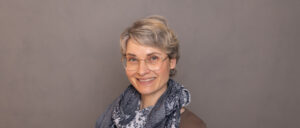
Tanja Aal Profile
Research Assistant in the Subproject A05 “The Cooperative Creation of User Autonomy in the Context of the Ageing Society”
Dissertation Project: “Ethical Future Environments: (Digital) inclusion of vulnerable and marginalized human and non-human actors by using the Design Justice Framework”
Abstract: I study virtual social spaces and infrastructures, focusing on human and non-human technological interactions, such as with animals. I explore the lack of digital participation leading to social exclusion and potential health risks. I look at the mental health experiences of refugees, the rehabilitation of prison inmates, the use of technology by seniors in care communities, and the conflict between farmers and lions. These studies span Germany, Switzerland, Botswana and Bangladesh, with prison inmates representing a non-spatially bounded group.
These issues are explored using digital technologies, including AI, psychosocial ICT, a lion alarm system, and common communication tools such as mobile phones and Zoom. I evaluate the benefits and challenges of collaborative media, focusing on the concept of the smart city as a digitally connected space.
Each case presents a unique crisis for each target group. I define the systemic exclusion of vulnerable and marginalised groups as a global crisis. Using the Design Justice Framework and qualitative methods, I aim to find long-term solutions to these problems, in particular addressing ethical dilemmas around the equitable development of technology or a more appropriate use of such to pave the way for full participation in society and, in this context, for better health and well-being.
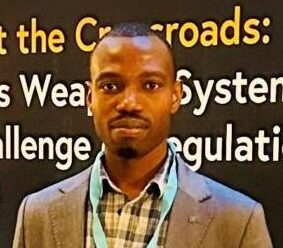
Ishmael Bhila Profile
MGK Fellow MGK “Integrated Research Training Group”
Dissertation Project: Worldmaking Practices in Autonomous Weapons Systems Discourse: Perspectives in and from the Global South
Abstract: Discussions on autonomous weapons systems (AWS) have been ongoing since 2013 in the United Nations Convention on Certain Convention (UNCCW) and since 2017 technical discussions have been done under the Group of Governmental Experts on Lethal Autonomous Weapons Systems (GGE on LAWS). These discussions have exposed the contrasting knowledge claims and systems concerning algorithmic warfare, with a clear distinction between the strategic positioning of highly militarised states and smaller states from the Global South. My thesis is an attempt to think ‘in’, ‘by’, ‘with’, ‘on’, and ‘from’ the Global South concerning conceptualisations and imaginaries of autonomous weapons systems.
My research critiques the discourses and sociotechnologies of insecurity engendered by machine autonomy in warfare, questioning how those at the receiving end of automated targeting in the Global South experience and attempt to shape the discourse on autonomous weapons systems. The research therefore focuses on the experiences, challenges, and strategies of smaller states from the Global South in the GGE on LAWS discussions as they attempt to build and contribute to global norms on the development, use, and practices of autonomy in weapons systems.
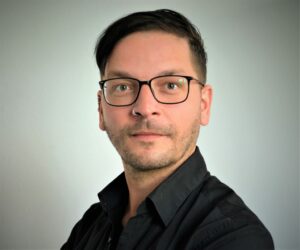
Christoph Borbach Profile
Dissertation Project: “Delay. Mediengeschichten der Verzögerung, 1850-1950”
Abstract: Das Dissertationsvorhaben widmet sich nicht der Geschichte eines Mediums, sondern dem Medienwerden eines vermeintlich medien- und kulturfernen physikalischen Phänomens: Den Geschwindigkeiten von Schall und Licht. Diese Raumbasiertheit des Sonischen wurde zunächst um 1800 in der empirisch ausgerichteten Theaterarchitekturtheorie als Störung virulent. Um 1850 wurde sie intensiv auf apparativer Basis erforscht, um in den darauffolgenden Jahrzehnten zu Sensormedien auf Basis von Laufzeitmessungen zu avancieren, die zumeist auf Impuls-Echo-Methoden basieren. Aus medientheoretischer Perspektive ist dabei bezeichnend, dass diese Praktiken und Technologien der Übertragung nur bedingt Informationen senden, sondern die Medien des Delays vielmehr durch situierte Akte der Übertragung Daten produzieren. In diesem Sinne richtet sich der Blick des Dissertationsvorhaben weniger auf mediale Übertragungen zwischen Akteuren, sondern auf die Übertragung als Akteur. Das Erkenntnisinteresse wird dabei auf Basis von Fallgeschichten modelliert. Diese schildern wiederholt die Erkenntnis der Produktivität von Laufzeit (Delay) als kritischem Parameter medialer Übertragungen. Davon ausgehend fragt die Arbeit nach den raumerzeugenden und raumvermessenden Praktiken technischer Systeme und Apparaturen, um medientheoretisch relevante Fragen zu beantworten. Was, wenn Verzögerung nicht das notwendige Übel jeder Signalsendung ist, sondern zur kritischen Qualität avanciert? Was, wenn Räume durch Übertragungen nicht überwunden, sondern vermessen werden? Und ist das Delay nicht eine genuine Medienfunktion?
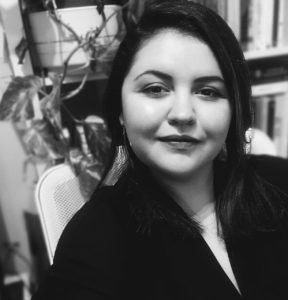
Clara Fernández de Bobadilla Profile
Dissertation Project: “Data in crisis: An ethnography of technical practices of/with data during the COVID-19 pandemic”
Abstract: Datafication of our lives and our societies involves a whole series of epistemic and epistemological, social, and political challenges. In the hands of science, governments, companies, and individuals, data — considered by some as “the new oil” (Humby, 2006)— seem to entail new modes of knowledge (Kitchin, 2014) as well as other forms of political governance and policymaking (Porter, 2020; Rottenburg et al., 2015), as noted by the European Commission (European Commission, 2021). Data —as inscriptions and representations of events of the world— and their infrastructure mediate the way institutions and citizens apprehend reality (Flyverbom & Murray, 2018). A paradigmatic example of this is the current health crisis caused by COVID-19. Data (health, epidemiological, etc.) have been decisive not only in representing the pandemic and making the virus and its effects on our society ‘visible’; but also, for making political decisions (distancing measures, restrictions, etc.) and justifying them to citizens. Data have become a key element in the epistemic diagnosis and the political decisions taken during the pandemic.
The pandemic has also highlighted the limitations and fragility of data. During this time, public institutions have encountered difficulties in gathering and publishing data, which were scattered among different administrations and unharmonized, with variable classification and production criteria (Ferrer-Sapena et al., 2020). These data have been subject to considerable controversy— understood as shared uncertainty around scientific-technical elements that have not yet been stabilized (Venturini, 2010)— about their use, public circulation, and the technical work required for their production.
This research is interested in the socio-material conditions of data production and circulation. For this purpose, this project develops an ethnography that follows COVID19 data from its origin – primary care consultations, hospitals, and trackers – and through the entire system, passing through the administration, data activism groups (Gutiérrez, 2018), and finally, the general public. The objective is to know the impact that socio-material conditioning factors have on the data throughout its circulation and how they are inscribed in the knowledge constructed through data.
This project dialogues with and will contribute to three disciplines: anthropology, sociology, and science and technology studies; it aims to contribute to current debates on open data, data governance, or citizen participation in health data governance.
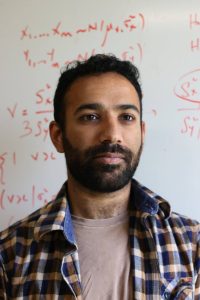
Ranjodh Singh Dhaliwal Profile
Dissertation Project: “Rendering: A Political Diagrammatology of Computing”
Abstract: In 1822, there were fierce conversations about “rendering” the plans of Charles Babbage’s Difference Engine. Many years later, in 1975, “rendering” the Utah teapot would be considered a landmark achievement in the history of computing. Over the last 150 years, this term rendering, which describes the transition between a virtual (or ‘potential’) and an actual (or ‘real’) object, has become increasingly important for our technological cultures. Circuit diagrams get rendered into computer hardware and datasets are rendered into images. Considering this long history by infusing a media-oriented investigation of computer architecture into the cultural history of computer graphics, this project narrates a history of the computer as a rendering machine.
This project accomplishes this political diagrammatology of computing in two intra-active phases. On the one hand, I tell stories detailing how ideology becomes computational. Studying maps, plans, and sketches from the early history of hardware and software, I show how computer technologies are frequently imagined as virtual microcosms, reproducing infrastructures and systems of social relations found in classrooms, military labs, and tech offices. Here, social forms, ideologies and assumptions about the world get worked into seemingly apolitical technological infrastructures, and politics of race, class, and gender get hard-coded into the very architecture of computers themselves. On the other hand, I study the politics of representational forms produced by such computer hardware, recounting how computational infrastructure produces ideologies of its own. In doing so, I probe the constraints and affordances of computer graphics and the worlds that they are able or unable to envision. Here, the computational architectures that seemed apolitical produce devastating(ly) social and political ramifications.
Rendering first interrogates how computational concepts (such as pipelines of the 1960s or parallel architecture from the 1980s) are culturally, graphically, and sometimes even fictionally constructed, and then enumerates the social ramifications of such techno-logics. Borrowing methods and concerns from media studies, science and technology studies, and science fiction studies, this project unpacks the historical, mediatic, and epistemological transitions between our politico-economic frameworks and contemporary computational cultures. Underscoring the influence computing, politics, and cultural media have had on each other’s histories, the project aims to produce an analytic that can successfully account for the material-virtual translations in our technical operations. The result is a history and theory of rendering.

Tim Moritz Hector Profile
Research Assistant in the Subproject B06 “Un-/desired Observation in Interaction: Smart Environments, Language, Body, and Senses in Private Households”
Dissertation Project: “Smart Speakers as participants in conversation? Linguistic practices in the process of domestication of media with voice-user interfaces”
Abstract: Intelligent Personal Assistants (IPAs), which are controlled via Voice User Interfaces (VUIs), are used in a steadily increasing number of households. They can be operated ‘hands-free’ and become part of the media environment of the household members. In the doctoral project, I examine from a linguistic point of view how media with Voice User Interfaces get domesticated and embedded in everyday-practice. What linguistic forms occur when operating the machine and (how) are the ‘conversational agents’ made part of a conversation? How is the status of the devices as a participant of the social practice linguistically negotiated? Which social practices arise in the usage of IPAs and how are they linguistically accomplished? The project is based on a corpus of data collected in eight different households and combines methodological approaches of ethnomethodological conversation analysis (Sacks/Schegloff/Jefferson 1974) and ethnographic analysis of talk-in-interaction.
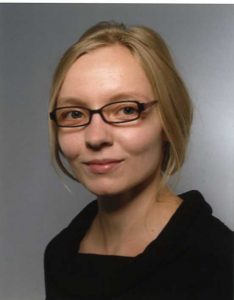

Maria Lompe Profile
Dissertation Project: “Shaping the Media Debate Towards Knowledge Structures. Mapping Controversies about the Vistula Spit Cross-cut”
Abstract: The Cross-cut through the Vistula Spit is one of the many environmental controversies in Poland that have occurred over the past twenty years. Currently, however, the discussion surrounding the project has taken on a different dimension than before, as it is largely taking place online. My PhD dissertation investigates this controversy from a Science Technology Studies (STS) perspective, using Actor Network Theory (ANT) with a particular focus on how knowledge about the Vistula Spit Cross-cut is produced and transformed as it circulates in social media. The main issues I would like to explore in my work are how knowledge about the Vistula Spit Cross-cut and the risks associated with this project is transformed by actors involved in the debate, and how media controversies shape the public debate, collective decision-making and risk management. I will also devote a large part of my reflection to the question of whether the debate over this controversy is determined by the type of platform on which the information is published? The main research area of the proposed project is the public online space, in particular two processes – the production of new/different ways of online public debate, and the relationship between scientific facts and specific groups in the online space. Due to interdisciplinary character of the project, the methodology used in it is twofold: data collection is based on mapping controversies using digital methods, while data analysis is largely based on Science Technology Studies approach, ANT and the relational knowledge model. Research on the mechanisms of knowledge production and circulation in the case of groups that actively participate in discussions about important environmental decisions may allow us to highlight new ways of constructing public debate.

Benedikt Merkle Profile
Dissertation Project: “Regulation of the sensory. Flash-Animation as the aesthetics of object-oriented programming”
Abstract: As early as 1925, Edgar Wind stated in a critique of the methods of art science that for images as a whole, “das geregelte Erfassen von Gegenständen [hängt] mit einer Regelung des Sinnlichen als solchem zusammen” (Edgar Wind, “Zur Systematik der künstlerischen Probleme”, in: Zeitschrift für Ästhetik und Allgemeine Kunstwissenschaft, 18/4, 1925, pp. 438-486, here p. 463). For computer-generated images, this relationship is intensified, since the imagination here is derived from a series of commands in the script. The regulation of the sensory is determined by the regulated capture of objects. Images can no longer be read as documents, but are to be understood as manifestations of certain display operations. They are thereby increasingly taking over the functions of texts.
My project deals with the conceptual evolution of a way of thinking about image, text and their entanglement in the context of information technology media. No longer as documents, digital images are to be interpreted as part of the writing process. In order to test this thesis, I present the example of Flash animation from a media and cultural-technical perspective. This platform for the creation of interactive visual web content, which was ubiquitous in the late 1990s and 2000s, is closely connected with the programming paradigm of object-oriented programming, which regulates the recording and constitution of objects in databases. On the one hand, the development and evolution of this visuality is linked to invisible, technical conditions. On the other hand, Flash animation offers tools for creating an aesthetic distance to digital objects, for example in the form of platforms for exchanging interactive games or films. The aim of this study is to integrate both the construction of the invisible and the visible into a model for historical description that can render the evolution of conceptual ways of thinking about the apprehension of objects.
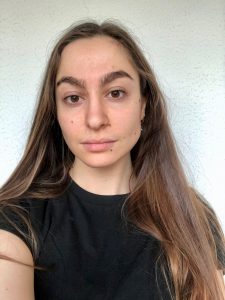
Aikaterini Mniestri Profile
Dissertation Project: “Rethinking YouTube: BreadTube and the Volatility of Platform Publics”
Abstract: Platform publics are networked publics that assemble in and are constituted by platform environments; they are mutually activated through the data-driven algorithmic affordances of the platform, its governance model, and user perceptions and interactions within the platform’s bounds. In this project I suggest the notion of platform publics to account for the intermingling of socio-technical processes that make online platforms (in this case: YouTube) resistant to stable definitions. As part of the CRC project area B: ‘Cooperative Media,’ this project will elaborate on the relational network through which human and non-human actors assemble in the process of collective cultural production and dissemination within YouTube. Taking into consideration the algorithmic affordances of YouTube’s neural networks, which condition recommendations on the platform, this study is interested in the grammars of action (Agre 1994) that specific platform publics develop in order to ensure visibility and a stable revenue stream. The platform public that forms the focal point of this research study is BreadTube, a political collective of YouTube-native, left-leaning content creators and their following. This project will focus on the following research question:
RQ1: How does time unravel for a platform public? YouTube stands out as a video sharing platform because it has maintained the role of an archive in its technical functions. In other words, users have access to content published a few minutes ago and many years ago in the same tab of recommendations. Therefore, users are afforded the opportunity to not only view but also engage with (like/dislike/comment on) older content from the creators they follow. An ostensibly benign technical function of the platform introduces a series of more complicated implications for user interactions. Ironically, though YouTube originally intended to serve as a video repository, it has actually allowed collective formations that negate a linear passage of time all-together as users interact with content produced and other users across vieos published at various points in time, (arguably this is a perception of the platform encouraged by YouTube itself, since comments are ranked by “most relevant” by default, and one would have to manually change that setting to view the “most recent” comments).
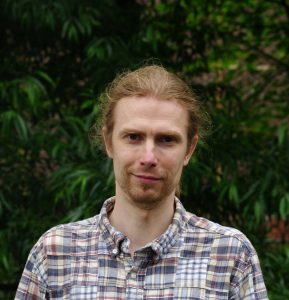
Dmitri Presnov Profile
Dissertation Project: “Anatomically integrated visualization of patient data”
Abstract: Due to the growing complexity of the course of treatment in modern hospitals, the distribution of medical activities in clinical pathways plays an increasingly important role, which, for its part, entails an intensive cooperation between various medical personnel. Such a cooperation requires an efficient and effective conveyance of patient-related diagnostic data relevant for each particular task. This requirement is difficult to meet with traditional data representation forms, such as text, alone. In this context, visualisation systems are a promising alternative. The goal of this doctor thesis is to develop an approach for visualisation of diagnostic patient data in cooperative clinical settings and to proof its feasibility by means of a prototypical implementation on a mobile device.
At the core of our approach is the idea to exploit the long visual tradition existent in medicine, which is tightly related to the human anatomy, in order to achieve an intuitive visualisation with a high user acceptance. Taking advantage of the fact that a significant part of the diagnostic cooperative data, e.g. clinical symptoms, are inherently associated with affected anatomical structures, we propose the concept of anatomically integrated in-place visualisation. This means that these data are encoded with appropriate visual attributes, such as colour or texture, which then are applied by rendering of the geometries of a 3D avatar that represent the respective anatomical structures.
We assume that the spatial embedding of data in the anatomical context makes their relation to the underlying real phenomena more evident, facilitating their assessment. It allows for the simultaneous visualisation of all diagnostic data relevant in the given cooperative settings, providing a synopsis of the current patient status at a glance and this way supporting a fast circulation of information.
The tightest relation between the visualization and the patient with the resulting benefits can be achieved if the 3D avatar not only represents body structures anatomically correctly but also possesses a resemblance to the real person. Such an avatar individualisation requires a 3D scene reconstruction from depth data, which can be acquired, for instance, with range cameras. One of the crucial factors for the reconstruction quality is the accuracy of camera tracking. In the case of a mobile device, however, limited CPU and GPU capabilities as well as a low spatial and temporal resolution of the depth data make an accurate tracking particularly challenging. This thesis addresses the mobile camera tracking problem augmenting the depth data with the data from inertial sensors and incorporating an appropriate sensor fusion method into the reconstruction pipeline.
A further fundamental challenge associated with the anatomically integrated visualisation regards the design of visual encoding. On the one hand, multiple medical data can refer to the same anatomical structure. Thus, to allow for their simultaneous visualisation a careful selection of complementary visual attributes is required. On the other hand, the encoding of quantified medical data has to take into account the limited distinctiveness of visual attributes for the human perception. The focus of this thesis is on the development of generalisable approaches for a semiautomatic data encoding in the context of a spatially embedded visualisation.
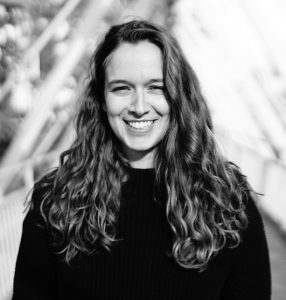
Sarah Rüller Profile
Dissertation Project: “Contesting Emerging Infrastructures: On Sensemaking of Technology in remote Morocco”
Abstract: Ongoing digitalization processes and increasing social media use in a remote area of Morocco come with several challenges for the local indigenous population. By collaborating with a local NGO and establishing a so-called MediaSpace as an entry to point to explore Information and Communication Technology (ICT), this doctoral research tries to better understand how digital transformation are intertwined with people’s daily life. Zooming in on different sociotechnical contexts – tourism, educational purposes, and (digital) literacy – different perspectives on emerging technologies and the accompanying sensemaking processes are captured. The dissertation explores both the researcher’s role, and the development of ICT in a remote valley in Morocco, aiming at finding implications for the design of future sociotechnical systems in contexts marked by infrastructural inaccessibility, multilinguism, and digital participation.
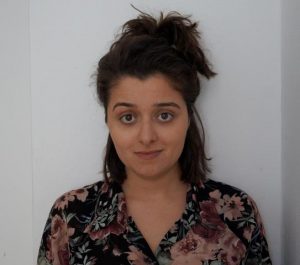
Lara Saadi Profile
Dissertation Project: “Mediatized democratic activisms on the margins of Europe – a comparative analysis of digital media practices of minority movement actors”
Abstract: The PhD project investigates digital media practices implemented by politically marginalized movement actors in Europe. It explores to what extent they use them in the context of their participation aspirations and which forms of mediatized socio-political intervention strategies can be demonstrated here. Therefore, the explorative study focuses on three movement actors: Firstly, the Neuen Deutschen Organisationen, a post-migrant network in Germany; secondly KAMER, a Kurdish feminist organization in Turkey; and thirdly the European Network of Migrant Women, a transnational network led by refugee women. The transcultural comparative research project is implemented according to the principles of the netnographic grounded theory – a form of an online media ethnography, which follows the methodology of the grounded theory. Hereby, the study refers to praxeological considerations and is heuristically inspired by current mediatization research and the perspectives of radical democratic theories.
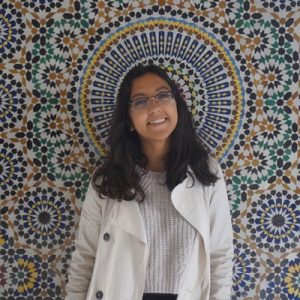
Ouejdane Sabbah Profile
Dissertation Project: “When the telecommunication industry meets platform companies: Facebook Network Analytics and the new infrastructural dimension of platforms”
Abstract: This project explores one aspect of platform companies-led connectivity initiatives, i.e. operator facilitation initiatives. This research argues for an exploration of a new infrastructural dimension adopted by platform companies that expands beyond notions such as infrastructural platform (Dijck et al., 2018) infrastructuralized platform (Plantin et al., 2016), or platform-as-infrastructure (Helmond et al, 2019). Focusing on the case study of Facebook Network Analytics, an analytics tool designed by Facebook and marketed for telecommunication companies, as part of their global connectivity efforts, this study uses publicly available sources, archived primary documentation, transcripts of industry events talk’s, and grey literature in order to frame the partnerships between telecommunication and platform companies more thoroughly and critically through an integrated theoretical approach that puts into discussion critical infrastructures studies, critical data studies, and platform studies.
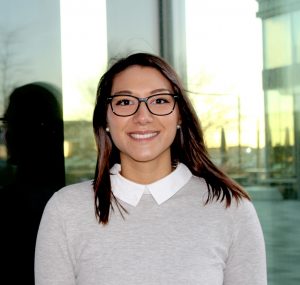
Sheree May Saßmannshausen Profile
Dissertation Project: “Intermediary, multimodal and immersive infrastructures for digital citizen participation in urban and regional planning”
Abstract: More and more cities are striving for increased (early) public participation in order not to miss out on the needs of the citizens in the planning process. Citizens also have an interest in influencing decisions about planning projects in their city, since they themselves are affected by the consequences. Traditional participation methods, such as citizens’ meetings, are very time-consuming and require time and location constraints. Digitization can help reach more people and involve them in planning processes independent from time and place. This also creates an opportunity to simplify communication, participation and collaboration between different stakeholders. In the context of infrastructure, urban and regional development projects, new construction and redesign projects are constantly being planned, about which citizens are to be informed or for which their opinions as well as their own ideas are required. Certain ideas can be difficult to write textually and require a strong imagination regarding different dimensions as well as spatial interaction in the real environment.
A suitable approach to involve citizens in planning processes and to support them in this way is the use of innovative technologies such as augmented/virtual or mixed reality, which can be used to create more audio-visual media and opportunities for spatial interaction. The approach for the PhD project is to explore new multimodal and intermediary forms of interaction that enable citizens (also collaboratively) to experience planning processes (and their designated results) immersively and thus to comprehend them better. The thesis is that this will improve participation practices, engage more citizens in participation processes, and achieve better mediation, communication, and collaboration between stakeholders. In the context of this, it will also be investigated how the use of this infrastructural participation platform influences actual media use and media practice. The research of appropriation (support of appropriation) will also be investigated, initially in the presented domain of citizen participation, and later extended to other domains.
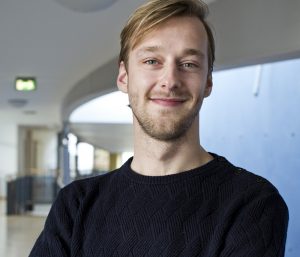
Fernando van der Vlist Profile
Dissertation Project: “The platform as ecosystem – Configurations and dynamics of governance and power”
Abstract: Digital platforms for social media are both underpinned by and enmeshed with larger digital infrastructure, making them increasingly complex research objects for scholars, individuals, and policymakers and regulators alike. Yet as governing systems, digital platforms organise, structure, and regulate the technical, social, economic, and cultural relationships between key parties in digital societies around the globe. The purpose of this dissertation is twofold: first, to articulate an empirically-informed understanding of digital platforms as infrastructures that organise datafication and governance relationships at/across different levels of the architecture; second, to develop research methodologies for the empirical and historical study of datafication and governance at these different architecture levels. The empirical case studies span three architecture levels: (i) the architecture of individual social media platform; (ii) the connected/interrelated ecosystems of multiple social media platforms; and (iii) relations between the mobile social media apps and app ecosystems built ‘on top of’ mobile platforms. Taken together, these entry points provide fundamental insights into the organisation of datafication and governance relationships as they emerge in digital infrastructure. Such practical insights about the implementation of datafication and governance are relevant to current scholarly debate on the significance of social media, digital platforms, and digital infrastructure. They are also relevant to public deliberation and to design effective regulations for governing the digital/datafied society. In the wake of revelations and growing public concerns about the power and influence of digital platforms and infrastructure in culture, society, and politics, it is particularly important that we develop a fundamental understanding of digital platforms and their evolving presence in specific marketplaces and domains and in society at large. Despite the criticism, many of these digital platforms remain among the largest, most global, and most widely used technical systems in history.
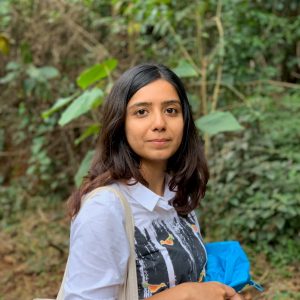
Palashi Vaghela Profile
Dissertation Project: “Caste as Computing: A historical and ethnographic analysis of the absence and persistence of caste in computing cultures of India”
Abstract: I am broadly interested in feminist methods of studying worlds of science and technology in India and draw from disciplines of Science and Technology Studies, Anthropology and Information Science for my work. My dissertation project is looking at caste and castelessness as a heuristic to analyze the contemporary culture of computing in India through a study of absence of caste and risks associated with making it visible. I am deeply motivated by anti-caste and anti-racist feminist frameworks that I bring in conversation with ethnomethodological approaches of studying the practices of computing as well as programs of diversity and inclusion in computing in India. My work is pulling together different actors, programs and discourses in a historical and ethnographic project to trace the relationship between caste, labor and capital at the basis of practices and logics of the contemporary computing industry in India. At the CRC “Media of Cooperation”, I will be working on my dissertation project looking at computing as a media practice where caste relations are underscored to study the publics formed, engaged and stabilized in the historical and contemporary upper-caste cultures of computing.
In addition to this, I am working on multiple projects of engaging with caste and gender in digital infrastructures. For example, one of my projects looks at how caste is performed and manifested in social networks on Twitter and another focuses on situated and gendered labor of coping with standards in/of digital infrastructures of governance in India.

Regina Wuzella Profile
Dissertation Project: “Maß-lose Gesten – Agency in the field of Robotic Manipulation”
Abstract: This project approaches the field of sensor-based robotic manipulation as an epiphenomenon of an Ambient Intelligence (AmI) that emerged within the realm of a “planetary scale computation” (see Bratton: 2016). The aim is to establish a historical-epistemological perspective on how sensor-based robotic systems “learn” and refer to their surroundings by understanding underlying machine learning algorithms as contingent representation models that have been shaped within specific scientific, political and economical parameters. How computational knowledge unfolds and new knowledge production takes place in the interaction between semi-autonomous robotic systems and humans is one of the central research aspects.